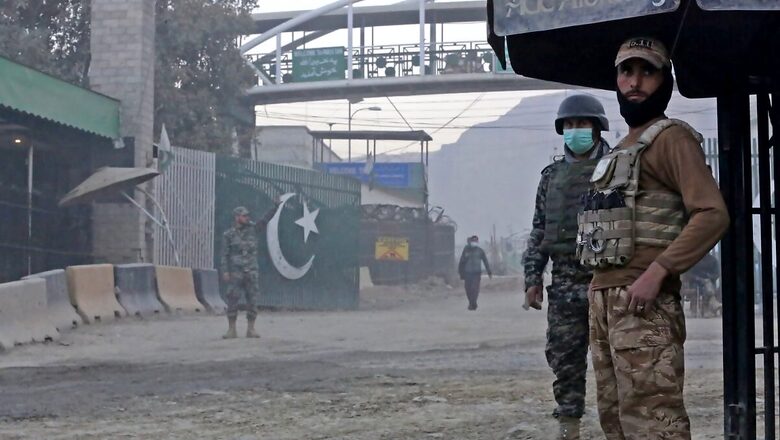
views
A ‘Welcome to Pakistan’ sign meant to greet travellers from Afghanistan instead caused the brief closure of the busiest frontier crossing on Wednesday, as officials on both sides argued over its installation. Pakistan and Afghanistan have had increasingly fraught relations in recent months, with Islamabad accusing the Taliban government of failing to root out militants staging attacks on Pakistan from Afghan soil — a claim Kabul has denied.
In response to the rising militancy, Islamabad has forced the deportation or voluntary transfer of Afghans it says are living illegally in the country, with more than 4,00,000 crossing over since October, as per the United Nations refugee agency. Both sides blamed the other for the latest shutdown of the Torkham border to vehicles.
The closure was caused by the “Taliban, who were unhappy with Pakistan’s deportation policy” and “the installation of the billboard was just an excuse”, a senior Pakistan border official, who asked to remain anonymous, told AFP.
However, Pakistan authorities later ordered the sign to be removed, as per officials on both sides. An AFP journalist on the Afghan side of the border also saw traffic flowing late in the afternoon.
Quraishi Badloon, from Nangarhar province’s information and culture department, said the board was removed by Pakistan. “The Pakistani side agreed in talks not to install the new billboard,” he told AFP.
He said earlier there were suspicions the signage was being used as a guise to open a new gate encroaching across the border. The Torkham crossing — equidistant between Islamabad and Kabul — has been frequently shut this year, with tensions sometimes spilling over into armed clashes between border guards across the frontier.
Many of those leaving Pakistan for Afghanistan since Islamabad announced the migrant crackdown left through the Torkham crossing, a vital waypoint for trade between the countries. No government in Kabul has ever recognised the colonial-era demarcation between Afghanistan and Pakistan, leading to a long history of border disputes.

















Comments
0 comment